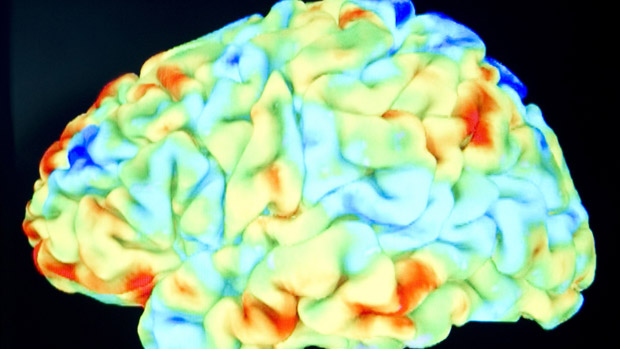Racism and sexism stem from 'optical illusion' in brain
Academics say recognising the problem could dramatically transform society

A free daily email with the biggest news stories of the day – and the best features from TheWeek.com
You are now subscribed
Your newsletter sign-up was successful
Racism and sexism stem from an "optical illusion" in the brain which causes an "implicit bias" against those who appear different.
This is the conclusion of academics investigating why people hold culturally defined prejudices.
Speaking at the annual meeting of the American Association for the Advancement of Science in Boston, Professor Lydia Villa-Komaroff said the brain has developed a number of shortcuts which produce a "cognitive illusion" of knowledge, making people prone to hold views such as fearing large black men and thinking maths is a "male" subject.
The Week
Escape your echo chamber. Get the facts behind the news, plus analysis from multiple perspectives.

Sign up for The Week's Free Newsletters
From our morning news briefing to a weekly Good News Newsletter, get the best of The Week delivered directly to your inbox.
From our morning news briefing to a weekly Good News Newsletter, get the best of The Week delivered directly to your inbox.
"It is a human thing, all of us are subject to implicit bias that arises because of our evolutionary and cultural history," Villa-Komaroff said.
The shortcut to fearing or distrusting difference evolved because "we grew up among lions and tigers and bears and people who wanted our property", she added. "We are prone to think that, because of our necessity to survive, anything that's different might be threatening and that remains part of the human condition. So we tend to think of differentness as possibly dangerous."
Villa-Komaroff also said that by recognising the problem and taking steps to address it society can be transformed dramatically for the better.
Georgia State University has completely eliminated the gaps in academic performance based on race, ethnicity and poverty — "attracting attention from academic institutions in South Africa, where the legacy of apartheid still resonates", says The Independent.
A free daily email with the biggest news stories of the day – and the best features from TheWeek.com
An online test has even been developed by Harvard University to enable people to discover just how implicitly biased they are, adds the paper.
-
 Why is the Trump administration talking about ‘Western civilization’?
Why is the Trump administration talking about ‘Western civilization’?Talking Points Rubio says Europe, US bonded by religion and ancestry
-
 Quentin Deranque: a student’s death energizes the French far right
Quentin Deranque: a student’s death energizes the French far rightIN THE SPOTLIGHT Reactions to the violent killing of an ultraconservative activist offer a glimpse at the culture wars roiling France ahead of next year’s elections
-
 Secured vs. unsecured loans: how do they differ and which is better?
Secured vs. unsecured loans: how do they differ and which is better?the explainer They are distinguished by the level of risk and the inclusion of collateral
-
 Epstein files topple law CEO, roil UK government
Epstein files topple law CEO, roil UK governmentSpeed Read Peter Mandelson, Britain’s former ambassador to the US, is caught up in the scandal
-
 Iran and US prepare to meet after skirmishes
Iran and US prepare to meet after skirmishesSpeed Read The incident comes amid heightened tensions in the Middle East
-
 Israel retrieves final hostage’s body from Gaza
Israel retrieves final hostage’s body from GazaSpeed Read The 24-year-old police officer was killed during the initial Hamas attack
-
 China’s Xi targets top general in growing purge
China’s Xi targets top general in growing purgeSpeed Read Zhang Youxia is being investigated over ‘grave violations’ of the law
-
 Panama and Canada are negotiating over a crucial copper mine
Panama and Canada are negotiating over a crucial copper mineIn the Spotlight Panama is set to make a final decision on the mine this summer
-
 Why Greenland’s natural resources are nearly impossible to mine
Why Greenland’s natural resources are nearly impossible to mineThe Explainer The country’s natural landscape makes the task extremely difficult
-
 Iran cuts internet as protests escalate
Iran cuts internet as protests escalateSpeed Reada Government buildings across the country have been set on fire
-
 US nabs ‘shadow’ tanker claimed by Russia
US nabs ‘shadow’ tanker claimed by RussiaSpeed Read The ship was one of two vessels seized by the US military